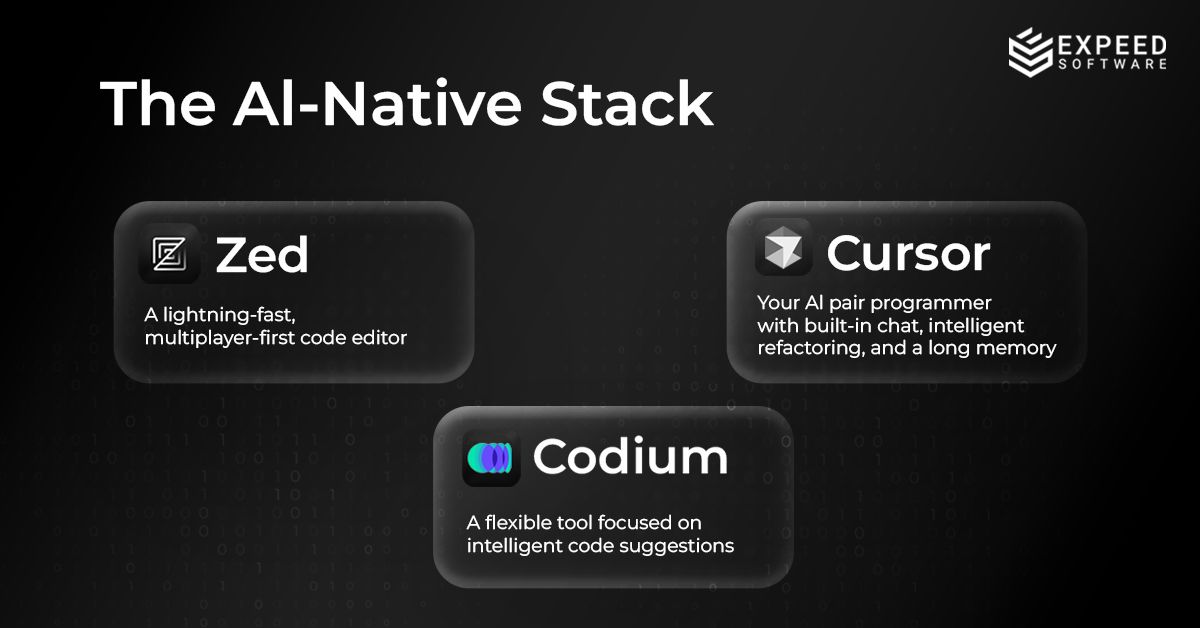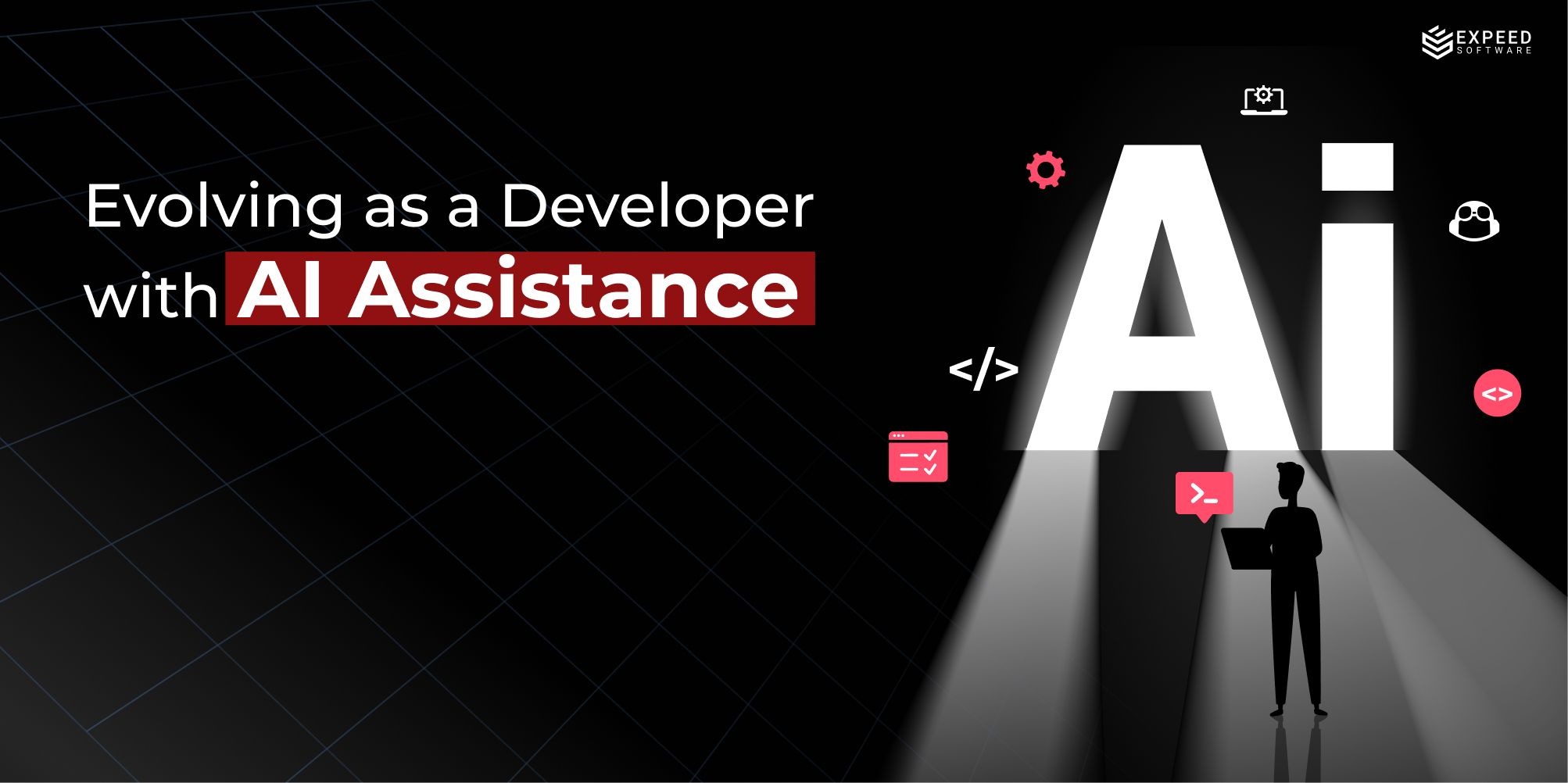For decades, writing code has meant one thing: fingers on keyboard, eyes on terminal, brain parsing syntax. The tools changed, the languages evolved—but the basic rhythm stayed the same.
Not anymore.
A new generation of AI-native code editors is here, and they are quietly dismantling everything we thought we knew about how software gets built. Unlike legacy editors retrofitted with AI extensions, these tools are born with AI inside them. They’re not assistants. They’re collaborators. Sometimes, they’re even autonomous agents in their own right.
And if you squint, you’ll see what’s coming next: a future where coding is no longer about typing lines, but about orchestrating intelligent systems that understand your goals and help you get there.
Enter the AI-Native Stack
This isn’t just about flashy autocomplete. These are fully integrated, AI-imbued environments that can reason across projects, suggest design improvements, and even write pull requests while you grab coffee.
What makes them game-changing isn’t just intelligence — it’s context. These tools don’t operate in a vacuum; they understand your repo history, team conventions, and architectural patterns. They’re not just assistants — they’re co-authors tuned to your coding rhythm.
The front-runners in this revolution?

- **Cursor**: Your AI pair programmer with built-in chat, intelligent refactoring, and a long memory. It doesn’t just answer questions — it navigates your whole codebase to find them.
- **Zed**: A lightning-fast, multiplayer-first code editor that integrates AI for real-time collaboration, edit prediction, and multi-language support.
- **Codeium**: A flexible tool focused on intelligent code suggestions, cross-IDE refactoring, and debugging that feels almost psychic.
These editors aren’t optional upgrades. They’re a complete shift in how software is written — always-on collaborators that blend the fluidity of conversation with the precision of machine learning. The result? Fewer context switches, smarter decisions, and dev environments that evolve with you.
More Than Tools, They Think Like Developers
What sets these editors apart isn’t just their intelligence, it’s their intuition. They’ve been architected to think the way developers do, to ask the right questions, and to reason through code like a teammate who knows your style.
You can talk to your codebase now. Literally. Ask why something works, or where a bug might be hiding, and you’ll get grounded, logical responses in natural language. These tools speak with your code, not just about it.
Refactoring is no longer a chore. These environments can reshape functions, re-architect modules, and even rename variables with the kind of semantic understanding that makes it feel like they’ve been on your team for months.
They also don’t stop at the file level. They understand systems, interfaces, dependencies and intent. They follow your logic across the entire project, reasoning like someone who’s seen the whole picture, not just the last file you opened.
And the intelligence is plural. You can toggle between models by using Claude for high-level design thinking, Gemini for rapid suggestions, or Ollama locally when privacy is key. You choose the brain that best fits the moment.
This isn’t autocomplete. It’s collaboration. A new kind of dialogue, where your editor doesn’t just obey but contributes.
Coding with an AI by Your Side
When you work with one of these editors, you don’t just move faster, you move differently.
- **Boosted Productivity**: Auto generation of boilerplate, tests, and docs means you focus on the parts that matter.
- **Cleaner Code**: Linting, static analysis, and formatting powered by LLMs keeps your code clean without you lifting a finger.
- **Accelerated Learning**: Junior developers don’t need to sink in confusion—they can ask the editor, “what does this function do?” and get a real answer.
- **On-Demand Testing**: AI can generate unit tests based on your code’s behavior, run them, and even debug when things break.
- **Collaborative Power**: In tools like Zed, real-time co-editing with AI suggestions feels like jamming with a brilliant team that never sleeps.
But Who’s Watching the Code?
AI-native editors are powerful but with great power comes the need for great data responsibility.
They often work by reading, analyzing, and sometimes transmitting your code. That raises hard questions. Questions that many of these platforms are already trying to answer:
- **Local Code Processing**: Some editors support models that run locally, keeping your code in-house.
- **Encrypted Transmission**: If data does leave your machine, it does so encrypted.
- **User Control**: You decide what’s shared and when.
- **Enterprise-Ready Compliance**: SOC2, GDPR, and other acronyms that mean “your legal team can breathe.”
Before adopting, check your editor’s settings and privacy policy. It’s not just smart—it’s essential.
Copilot or Native? Two Paths to the Same Goal
| **Feature** | **AI-Native Editors** | **GitHub Copilot** |
|---|---|---|
| Built for AI | Yes | No |
| Contextual Understanding | Full-project | Inline only |
| Model Options | Flexible | OpenAI only |
| Role in Workflow | Core | Supplement |
| Learning Curve | Higher | Minimal |
Use AI-native editors if you're ready to rebuild your development workflow around intelligent collaboration. Stick with Copilot if you just want a boost without leaving your current setup.
The Rise of Agentic Development
Something fascinating is happening on the frontier of these tools. They're not just responding anymore. They’re acting.
**Agents with Tasks**
In Cursor, you can now spin up AI agents with instructions like:
“Add unit tests to this repo.”
“Migrate this codebase to TypeScript.”
They’ll make changes, raise pull requests, and explain what they did. All in the background. All while you move on to the next thing.
** Zed’s Multi-Model Playground**
Want Claude 3.5 for natural language prompts and Ollama for offline safety? Zed lets you plug them both in. It's flexibility meets productivity.
**The Vibe Shift**
Developer and AI researcher Andrej Karpathy calls it “vibe coding.” Describe your intent—“I want a login page with Google Auth and dark mode”—and the AI writes the whole thing. Apple is reportedly baking this into Xcode.
**Prompt-as-Source**
Forget files. The new source of truth is the prompt + the test. AI-native editors are now tracking prompt histories and decision trees—offering a transparent, reproducible audit trail.
**Testing Gets Smarter**
AI tools like OpenAI’s Codex are now writing tests, reviewing pull requests, and scanning for security flaws. All in sandboxed, safe environments.
What’s Next?
We’re not even close to done. The next wave is already building:
- **Local-first LLMs**: Expect editors that run entirely offline, protecting IP while delivering LLM-level intelligence.
- **Enterprise AI Workflows**: Big companies want SOC2, GDPR, and auditability. They’re getting it.
- **Coding Beyond the Keyboard**: Speak your feature into existence. Sketch a flowchart. Let AI build from intent.
This is no longer science fiction. It’s product roadmap.
Final Thought: Code is Conversation Now
In this new world, developers are no longer just writers of code, they’re designers of intelligent workflows. Their tools are no longer editors, they're collaborators with memory, reasoning, and agency.
Whether you’re building a startup MVP or leading a 500-person engineering team, the signal is clear: The way we build software is fundamentally changing.
Welcome to the era of AI-native development. Where code isn't just typed, it's co-created. And your editor doesn't just help. It thinks.




